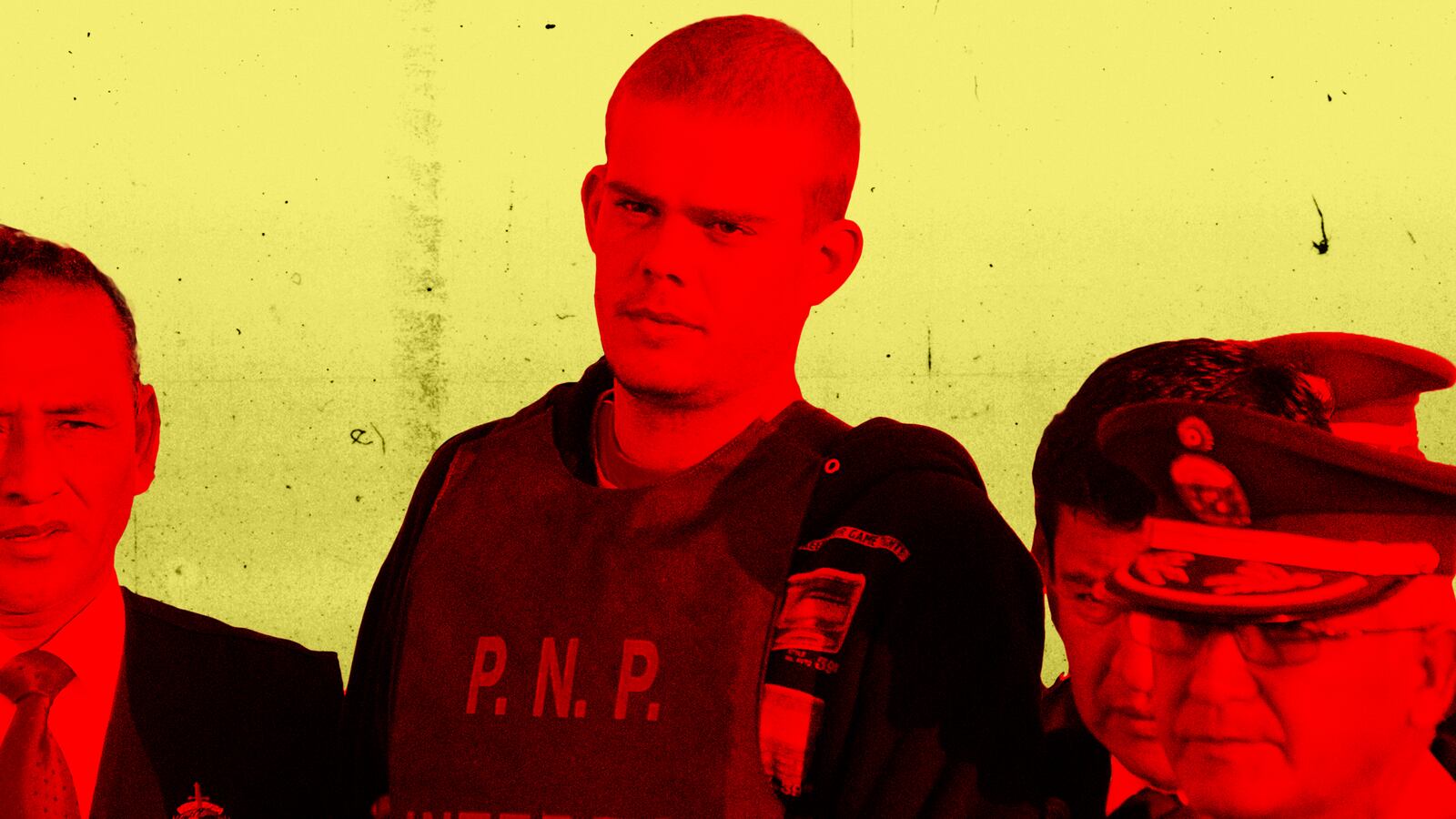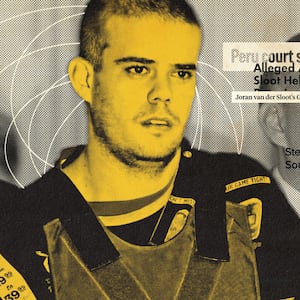If Pathological: The Lies of Joran van der Sloot says anything useful about a story that’s been told, analyzed, and revisited to death, it’s that what gripped the public about Natalee Holloway was not just the mystery of her fate, but the fact that her disappearance was every parent’s worst nightmare come to heartrending, infuriating life. A young woman with a bright future, copious friends, and a loving family, Holloway was destined for bigger and better things. When she vanished for no reason on a senior trip to Aruba, it suggested—to her mother and father, as well as those throughout America and around the world—that no matter how well a kid was raised, how properly they behaved, and how much they had to offer, safety from tragedy was an illusion.
Peacock’s Pathological: The Lies of Joran van der Sloot (February 27) is most effective when illustrating how quickly and senselessly a life, and all those connected to it, can be shattered. Unfortunately, that’s about the only valuable thing offered by this overly dramatic and revelation-lite feature-length documentary, whose main purpose seems to be rehashing that which has already been exhaustively covered by the media and, also, underscoring the sociopathic dishonesty of Joran van der Sloot.
A Dutch native who’d lived in Aruba since he was young, van der Sloot was the last person seen with Holloway on her final night, and he’d remain the suspect in her death for close to two decades, along the way stringing along the teenager’s mother Beth, father David, and brother Matt with various fictitious stories. For years, it appeared that van der Sloot would get away with the crime. Then, in 2010, he was arrested and convicted in Peru of slaying another young woman, Stephany Flores, which began a process that ultimately concluded with him confessing to Holloway’s murder.
This sad saga began on May 30, 2005, when during that fateful trip to Aruba, Holloway drove away in a silver car, never to be seen again. The next morning, at the Holiday Inn where everyone was staying, her high-school friends were puzzled that she was MIA. When they subsequently couldn’t locate her, alarm bells went off. Having recently received a scholarship to attend the University of Alabama, where she planned to study medicine, Holloway wasn’t someone who would have simply up and departed without a word.
Asking around quickly turned up the name Joran van der Sloot, who the receptionist said was a frequent presence at the hotel and had a reputation for preying upon young girls. Holloway’s mom Beth was soon in Aruba posting flyers about a $1 million reward for information and pushing cops to act. Police soon visited van der Sloot’s home, where they discovered a silver car and the young man, who—flanked by his father Paulus, a prominent lawyer with alleged ties to the chief of police—said that he’d had a few drinks with Holloway but knew nothing else.
Regardless of his initial denials, van der Sloot swiftly became the prime suspect, and he’d compound his problems by repeatedly changing his story. He was an obviously untrustworthy individual who was hiding something and apparently enjoyed toying with those trying to link him to Holloway’s demise. With no body and no evidence tying him to her, he had reason to be cocky. And cocky is how he comes off in the many archival clips featured in Pathological: The Lies of Joran van der Sloot. Smugly portraying himself as the victim of an unjust witch hunt, van der Sloot resembles the very type of sleazy entitled cretin he was accused of being. The B.S. he feeds authorities—that he and his pals dropped Holloway off at the hotel! Or actually, maybe one of his buddies killed her on the beach where he left her!—is almost as extreme as the arrogance with which he delivers it, replete with demands to interrogators to “bring on your so-called proof!”
In 2008, van der Sloot absconded to Thailand to continue indulging his gambling addiction, and when his financial situation turned dire, he duped Fox News’ Greta Van Susteren into paying him thousands for an interview full of falsehoods. Following his father’s fatal heart attack in 2010, he perpetrated the ghastliest of extortion schemes, agreeing to tell Beth what had happened to Holloway (and where to find her remains) for $250,000. Once he had the cash—therefore making him guilty of extortion and wire fraud—he vomited up more lies.
With that money, he relocated to Peru for a poker tournament, and it was there that he met Flores, whose father speaks agonizingly about his only daughter in the film. As documented by security camera footage shot on her last night alive—which was, astoundingly, the five-year anniversary of Holloway’s death—Flores spent time with van der Sloot at a casino before returning to his hotel room. The next morning, he faked bringing her back some coffee and then took off in her car, which he ditched in favor of taxis whose drivers, in Pathological: The Lies of Joran van der Sloot, recount taking him hours away in a vain attempt to cross into Chile.
Whereas van der Sloot had successfully avoided arrest for Holloway’s homicide, he couldn’t escape justice with regards to Flores, whose murder landed him behind bars for 28 years. Pathological: The Lies of Joran van der Sloot expresses intense disgust over the fact that even in prison, van der Sloot has been allowed to marry, have a child, divorce, and trick an ensuing girlfriend into being his drug mule. An interview with that duped paramour underlines van der Sloot’s inherent manipulativeness (and her shocking gullibility), although the material refuses to end on a down note. Instead, it relays how van der Sloot was extradited to the U.S. in 2023 and struck a plea deal that required him to confess to Holloway’s murder, thereby providing Beth with the closure she long sought.
Pathological: The Lies of Joran van der Sloot is thus a tale of justice delayed but eventually achieved. Still, as more than one talking head implies with regards to his mea culpa, buying everything van der Sloot sells is a fool’s game.








